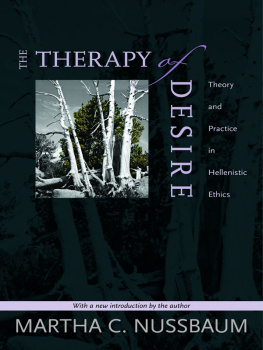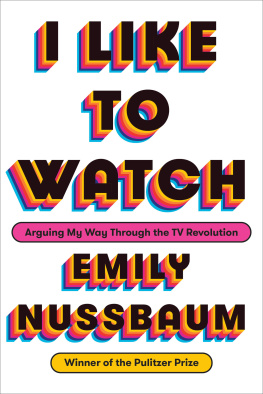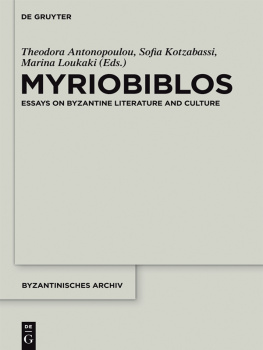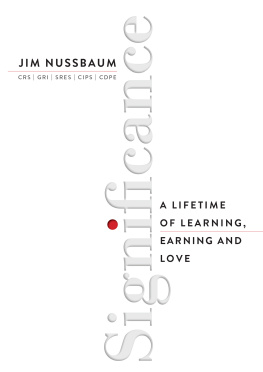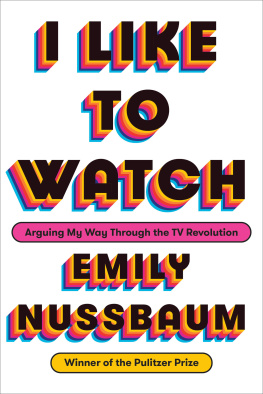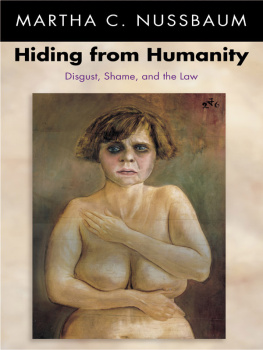Nussbaum - Loves knowledge: essays on philosophy and literature
Here you can read online Nussbaum - Loves knowledge: essays on philosophy and literature full text of the book (entire story) in english for free. Download pdf and epub, get meaning, cover and reviews about this ebook. City: USA;New York, year: 2009;1990, publisher: Oxford University Press, genre: Religion. Description of the work, (preface) as well as reviews are available. Best literature library LitArk.com created for fans of good reading and offers a wide selection of genres:
Romance novel
Science fiction
Adventure
Detective
Science
History
Home and family
Prose
Art
Politics
Computer
Non-fiction
Religion
Business
Children
Humor
Choose a favorite category and find really read worthwhile books. Enjoy immersion in the world of imagination, feel the emotions of the characters or learn something new for yourself, make an fascinating discovery.

- Book:Loves knowledge: essays on philosophy and literature
- Author:
- Publisher:Oxford University Press
- Genre:
- Year:2009;1990
- City:USA;New York
- Rating:5 / 5
- Favourites:Add to favourites
- Your mark:
- 100
- 1
- 2
- 3
- 4
- 5
Loves knowledge: essays on philosophy and literature: summary, description and annotation
We offer to read an annotation, description, summary or preface (depends on what the author of the book "Loves knowledge: essays on philosophy and literature" wrote himself). If you haven't found the necessary information about the book — write in the comments, we will try to find it.
Loves knowledge: essays on philosophy and literature — read online for free the complete book (whole text) full work
Below is the text of the book, divided by pages. System saving the place of the last page read, allows you to conveniently read the book "Loves knowledge: essays on philosophy and literature" online for free, without having to search again every time where you left off. Put a bookmark, and you can go to the page where you finished reading at any time.
Font size:
Interval:
Bookmark:
LOVES KNOWLEDGE
Essays on Philosophy and literature
MARTHA C. NUSSBAUM

Oxford University Press
Oxford New York Toronto
Delhi Bombay Calcutta Madras Karachi
Petaling Jaya Singapore Hong Kong Tokyo
Nairobi Dar es Salaam Cape Town
Melbourne Auckland
and associated companies in
Berlin Ibadan
Copyright 1990 by Martha C. Nussbaum
First published by Oxford University Press, 1990
First issued as an Oxford University Press paperback, 1992
Oxford University Press, Inc.,
198 Madison Avenue, New York, New York 100164314
Oxford is a registered trademark of Oxford University Press
All rights reserved. No part of this publication may be reproduced,
stored in a retrieval system, or transmitted, in any form or by any means,
electronic, mechanical, photocopying, recording or otherwise,
without the prior permission of the publisher.
Library of Congress Cataloging-in-Publication Data
Nussbaum, Martha Craven, 1947
Loves knowledge : essays on philosophy and literature/
Martha C. Nussbaum. p. cm.
Includes bibliographical references.
ISBN-13 9780-19507485-7 (pbk)
1. Ethics. 2. Literature and morals. 3. Philosophy in
literature. I. Title.
BJ46.N87 1990
170dc20 8939728
Since this page cannot accommodate all the copyright notices,
the page that follows constitutes an extension of the copyright page.
15 17 19 18 16 14
Printed in the United States of America
on acid-free paper
The essays in this collection have been previously published as follows:
The Discernment of Perception: An Aristotelian Conception of Private and Public Rationality, Proceedings of the Boston Area Colloquium in Ancient Philosophy 1 (1985): 151201. (The present volume contains a revised and expanded version.)
Plato on Commensurability and Desire, Proceedings of the Aristotelian Society, suppl. vol. 58 (1984): 5580.
Flawed Crystals: Jamess The Golden Bowl and Literature as Moral Philosophy, New Literary History 15 (1983): 2550.
Finely Aware and Richly Responsible: Literature and the Moral Imagination, in Literature and the Question of Philosophy, ed. A. Cascardi (Baltimore: The Johns Hopkins University Press, 1987), 16991. (An earlier and briefer version was published as Finely Aware and Richly Responsible: Moral Attention and the Moral Task of Literature, Journal of Philosophy 82 [1985]: 51629.)
Perceptive Equilibrium: Literary Theory and Ethical Theory, in The Future of Literary Theory, ed. R. Cohen (London: Routledge, Chapman, and Hall, 1989), 5885. (An earlier version was published in Logos 8 (1987): 5583) (revised).
Perception and Revolution; The Princess Casamassima and the Political Imagination, in Method, Language, and Reason: Essays in Honour of Hilary Putnam, ed. G. Boolos (Cambridge, Eng.: Cambridge University Press, 1990).
Sophistry About Conventions, New Literary History 17 (1985): 12939.
Reading for Life, The Yale Journal of Law and the Humanities 1 (1988): 16580 (revised).
Fictions of the Soul, Philosophy and Literature 7 (1983): 14561.
Loves Knowledge, in Perspectives on Self-Deception, ed. B. McLaughlin and A. Rorty (Berkeley: University of California Press, 1988), 487514.
Narrative Emotions: Becketts Genealogy of Love, Ethics 98 (1988): 22554. (A French version was published in Littrature 11 (1988), 4058.)
Love and the Individual: Romantic Rightness and Platonic Aspiration, in Reconstructing Individualism, ed. T. Heller et al. (Stanford, Calif.: Stanford University Press, 1986), 25781.
For my mother and grandmother,
Betty W. Craven and Qertrude J. de Quintal
This volume collects my published papers on the relationship between literature and philosophy, especially moral philosophy. It adds to the previously published material expanded and revised versions of three essays, two entirely new essays, and a substantive Introduction. The essays explore some fundamental issues about the connections between philosophy and literature: the relationship between style and content in the exploration of ethical issues; the nature of ethical attention and ethical knowledge and their relationship to written forms and styles; the role of the emotions in deliberation and self-knowledge. The essays argue for a conception of ethical understanding that involves emotional as well as intellectual activity and gives a certain type of priority to the perception of particular people and situations, rather than to abstract rules. They argue that this conception, rather than being imprecise and irrational, is actually superior in rationality and in the relevant sort of precision. They argue, further, that this ethical conception finds its most appropriate expression and statement in certain forms usually considered literary rather than philosophicaland that if we wish to take it seriously we must broaden our conception of moral philosophy in order to include these texts inside it. They attempt to articulate the relationship, within such a broader ethical inquiry, between literary and more abstractly theoretical elements.
In their original places of publication, the papers were not accessible to non-specialist readers, since most of them appeared in journals and collections that do not have wide circulation. Some are difficult to obtain even for the academic reader. Equally troublesome was the question of disciplinary location. These papers cross traditional disciplinary boundaries. They also argue that certain important questions cannot be well addressed unless those boundaries are crossed. And yet ironically, because of the very separations they criticize, they have on the whole been separated from one another, appearing in publications some of which are read by philosophers, others by literary scholars. The present collection should remedy that problem, enabling readers of all backgrounds and interests to assess them as a group.
This project has close affiliations with much of my work on ancient Greek philosophy: especially with The Fragility of Goodness: Luck and Ethics in Greek Tragedy and Philosophy (Cambridge, Eng.: Cambridge University Press, 1986), and with The Therapy of Desire: Theory and Practice in Hellenistic Ethics, based on the Martin Classical Lectures 1986, and forthcoming. The discussions of literary and ethical topics in these books are continuous with many of the arguments here. I have included in this volume two published articles on ancient Greek topics written at the same time as The Fragility of Goodness: The Discernment of Perception and Plato on Commensurability and Desire. These articles develop in greater detail than some of the literary papers some important parts of the ethical conception that I am investigating in the collection as a whole. (The former has been revised and expanded for this collection.) Transcending Humanity, not previously published, links some of my work on Greek philosophy to the contemporary issues of this collection. Two earlier pieces on the connection between philosophy and literature in ancient Greek texts are not included: Consequences and Character in Sophocles Philoctetes, Philosophy and Literature 1 (198687): 2553, and Aristophanes and Socrates on Learning Practical Wisdom, Yale Classical Studies 26 (1980): 4397. I still endorse the arguments of these pieces, and hope to collect them in a different sort of volume at some point. But since they discuss ethical issues
Next pageFont size:
Interval:
Bookmark:
Similar books «Loves knowledge: essays on philosophy and literature»
Look at similar books to Loves knowledge: essays on philosophy and literature. We have selected literature similar in name and meaning in the hope of providing readers with more options to find new, interesting, not yet read works.
Discussion, reviews of the book Loves knowledge: essays on philosophy and literature and just readers' own opinions. Leave your comments, write what you think about the work, its meaning or the main characters. Specify what exactly you liked and what you didn't like, and why you think so.

